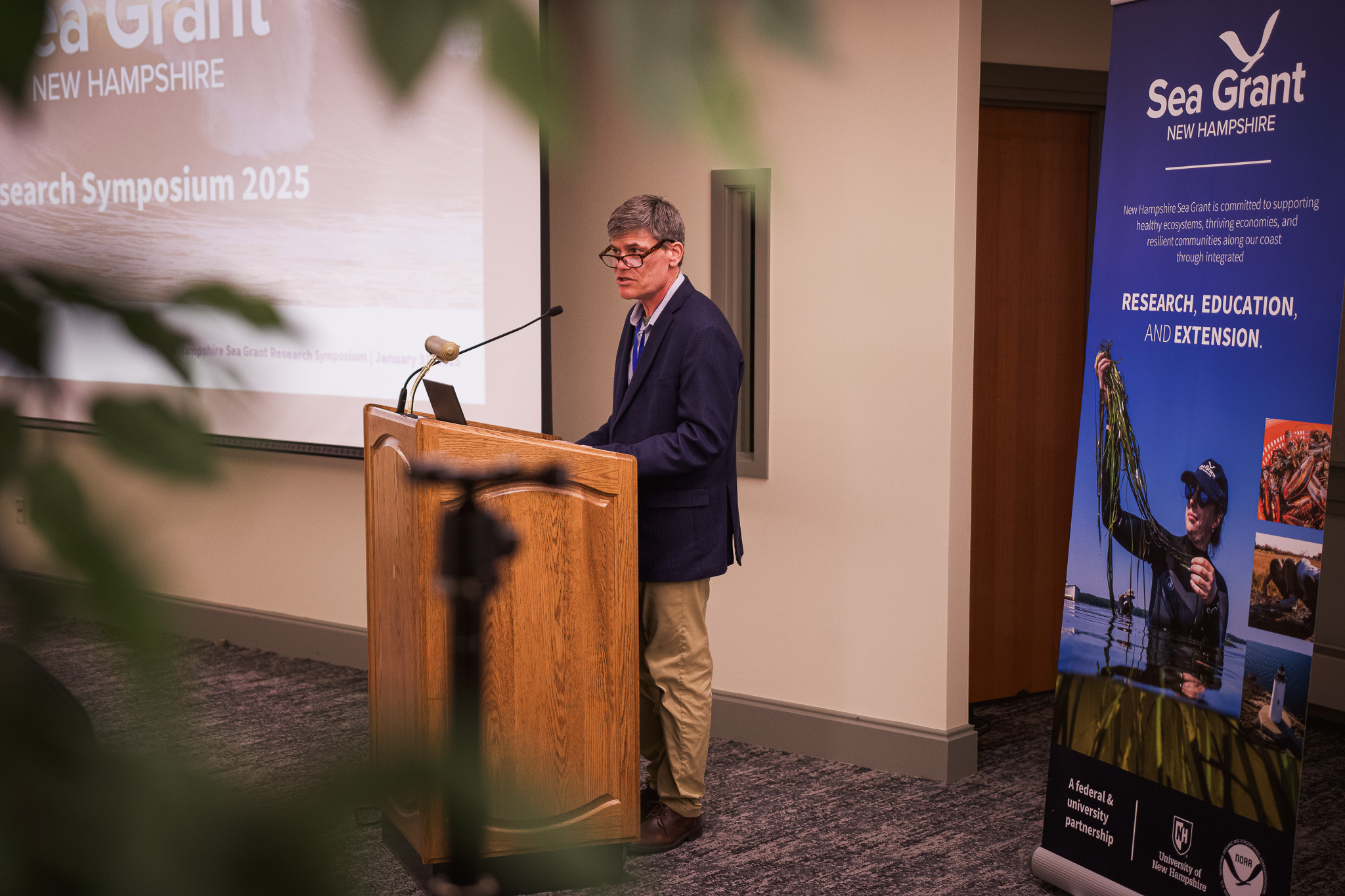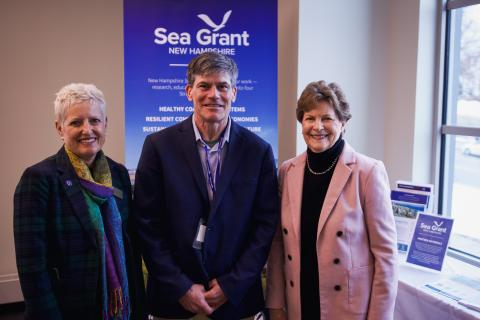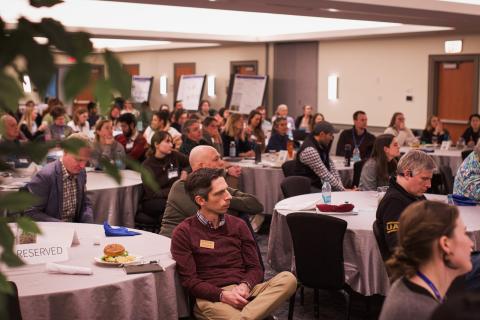Better Science, Stronger Communities: A Recap of New Hampshire Sea Grant’s Research Symposium

On January 31, 2025, New Hampshire Sea Grant hosted its biennial Research Symposium at the University of New Hampshire's Holloway Commons in Durham. The event showcased the significant impact of Sea Grant-funded research on the state's coastal ecosystems, communities, and economy.
The symposium featured presentations from a dozen Sea Grant-funded research projects, each addressing critical challenges in New Hampshire's marine and coastal environments. These projects, focusing on areas such as coastal resilience, fisheries health, emerging environmental contaminants, and sustainable aquaculture exemplify how investment in research yields tangible benefits for the Granite State.
One highlighted project, led by Sherman Bigornia from the University of New Hampshire, developed a culturally tailored online nutrition education program targeting fish consumption among Hispanic adults. This initiative not only promotes healthier eating habits but also supports local fisheries, demonstrating the multifaceted advantages of such research.

Sherman Bigornia, a researcher from the Department of Agriculture, Nutrition, and Food Systems at the University of New Hampshire, shares his research project titled: Development and evaluation of a culturally tailored online nutrition education program targeting fish consumption among Hispanic adults.
Another notable study, conducted by Celia Chen of Dartmouth College, examined the factors influencing PFAS (per- and polyfluoroalkyl substances) bioaccumulation in marine food webs within the Great Bay estuary. It is known that these chemicals are widely present in consumer products, have adverse effects on human health, and were introduced into the Great Bay Estuary from Pease Airforce Base and nearby landfills. However, how these compounds build up and are transferred between animals in a food web is still unclear, and so the risk to humans through seafood is not well known. Dr. Chen’s research provides essential insights into PFAS as an emerging environmental contaminant, informing policies to protect both local ecosystems and human health.

Celia Chen, a researcher with the Department of Biological Sciences at Dartmouth College, shares her project titled: Factors influencing PFAS bioaccumulation and biomagnification in marine food webs associated with aqueous film-forming foams (AFFF) sources in a New England estuary.
The symposium also served as a platform for discussing best practices in translating cross-disciplinary science into actionable solutions. By fostering collaboration among researchers, extension staff, students, and interested parties, New Hampshire Sea Grant ensures that scientific advancements are responsive to needs and relevant to the state's coastal communities.
With more than 130 attendees including researchers, students, community members, partner organizations, and legislative representatives, the success of the Research Symposium underscores the broad impact that New Hampshire Sea Grant has for Granite Staters.
“Sea Grant is a key driver of efforts to protect our coast that not only strengthens the health of our coastal areas, but also informs and improves how we utilize coastal resources to benefit our local communities and the coastal economy,” said U.S. Senator Jeanne Shaheen during her opening remarks.

Dr. Erik Chapman, New Hampshire Sea Gran't director, standing alongside Senator Jeanne Shaheen and Marian McCord, University of New Hampshire's senior vice provost, at the New Hampshire Sea Grant Research Symposium.
The Sea Grant-funded research not only addresses pressing environmental challenges but also bolsters the state's economy and enhances the well-being of its residents. As these projects illustrate, such investments in coastal and marine research in New Hampshire benefit both ecosystems and communities.
Moments from the Research Symposium
NH Sea Grant’s guiding philosophy is to serve the state and region by funding innovative and cutting-edge research integrated with expert extension, outreach, and education to support dialogue and science-based decision-making in areas of particular importance to the region. To meet this mission, NH Sea Grant seeks to foster and support the highest quality marine and coastal research and education projects that relate to the program’s Focus Areas: Sustainable Fisheries and Aquaculture, Healthy Coastal Ecosystems, Resilient Communities and Economies, Environmental Literacy and Workforce Development.
Take a deeper dive into research projects currently funded by New Hampshire Sea Grant:
Learn more about New Hampshire Sea Grant’s biennial Request for Proposals (RFP):














